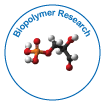हमारा समूह 1000 से अधिक वैज्ञानिक सोसायटी के सहयोग से हर साल संयुक्त राज्य अमेरिका, यूरोप और एशिया में 3000+ वैश्विक सम्मेलन श्रृंखला कार्यक्रम आयोजित करता है और 700+ ओपन एक्सेस जर्नल प्रकाशित करता है जिसमें 50000 से अधिक प्रतिष्ठित व्यक्तित्व, प्रतिष्ठित वैज्ञानिक संपादकीय बोर्ड के सदस्यों के रूप में शामिल होते हैं।
ओपन एक्सेस जर्नल्स को अधिक पाठक और उद्धरण मिल रहे हैं
700 जर्नल और 15,000,000 पाठक प्रत्येक जर्नल को 25,000+ पाठक मिल रहे हैं
में अनुक्रमित
- पबलोन्स
उपयोगी कड़ियां
एक्सेस जर्नल खोलें
इस पृष्ठ को साझा करें
अमूर्त
Assessment of Intracellular Delivery Potential of Novel Sustainable Poly(?decalactone)-Based Micelles
Kuldeep Kumar Bansal
Biodegradable polymers from renewable resources have attracted a lot of attention in recent years inside the medical specialty field. Lately, poly(δ-decalactone) based mostly polymer micelles have emerged as a possible drug delivery carrier material as a property different to fossil-based polymers. However, their living thing drug delivery potential isn't however investigated and thus, during this work, we have a tendency to report on the synthesis and cellular uptake potency of poly(δ-decalactone) based mostly micelles with or while not a targeting substance. pteroylglutamic acid was chosen as a model targeting substance and Rhodamine B as a fluorescent tracer to demonstrate the easy functionalisation side of copolymers. The synthesis of block copolymers was accomplished by a mix of facile ring-opening polymerization and click on chemistry to retain the structure uniformity. The presence of pteroylglutamic acid on the surface of micelles with diameter ~150 nm upsurge the uptake potency by one.6 fold on vitamin B complex receptor overexpressing MDA-MB-231 cells indicating the attainment of targeting victimisation substance practicality. The drug delivery capability of those carriers was determined by victimisation docetaxel as a model drug, whereby the in vitro toxicity of the drug was considerably hyperbolic once incorporation in micelles forty eight h post incubation. we've conjointly investigated the doable endocytosis route of non-targeted micelles and located that caveolae-mediated endocytosis was the well-liked route of uptake. This work strengthens the prospect of victimisation novel biobased poly(δ-decalactone) micelles as economical multifunctional drug delivery nanocarriers towards medical applications.
विषयानुसार पत्रिकाएँ
- अंक शास्त्र
- अभियांत्रिकी
- आनुवंशिकी एवं आण्विक जीवविज्ञान
- इम्यूनोलॉजी और माइक्रोबायोलॉजी
- औषधि विज्ञान
- कंप्यूटर विज्ञान
- कृषि और जलकृषि
- केमिकल इंजीनियरिंग
- चिकित्सीय विज्ञान
- जीव रसायन
- नर्सिंग एवं स्वास्थ्य देखभाल
- नैदानिक विज्ञान
- नैनो
- पदार्थ विज्ञान
- पर्यावरण विज्ञान
- पशु चिकित्सा विज्ञान
- पादप विज्ञान
- बायोमेडिकल साइंसेज
- भूविज्ञान और पृथ्वी विज्ञान
- भोजन एवं पोषण
- भौतिक विज्ञान
- रसायन विज्ञान
- व्यवसाय प्रबंधन
- सामाजिक एवं राजनीतिक विज्ञान
- सामान्य विज्ञान
- सूचना विज्ञान
क्लिनिकल एवं मेडिकल जर्नल
- आणविक जीव विज्ञान
- आनुवंशिकी
- इम्मुनोलोगि
- एनेस्थिसियोलॉजी
- कार्डियलजी
- कीटाणु-विज्ञान
- कैंसर विज्ञान
- गैस्ट्रोएंटरोलॉजी
- ज़हरज्ञान
- तंत्रिका-विज्ञान
- त्वचा विज्ञान
- दंत चिकित्सा
- दवा
- नर्सिंग
- नेत्र विज्ञान
- नेफ्रोलॉजी
- नैदानिक अनुसंधान
- पल्मोनोलॉजी
- प्रजनन चिकित्सा
- बच्चों की दवा करने की विद्या
- भौतिक चिकित्सा एवं पुनर्वास
- मधुमेह और एंडोक्राइनोलॉजी
- मनश्चिकित्सा
- रुधिर
- रेडियोलोजी
- शल्य चिकित्सा
- संक्रामक रोग
- स्वास्थ्य देखभाल
- हड्डी रोग

 English
English  Spanish
Spanish  Chinese
Chinese  Russian
Russian  German
German  French
French  Japanese
Japanese  Portuguese
Portuguese  Telugu
Telugu